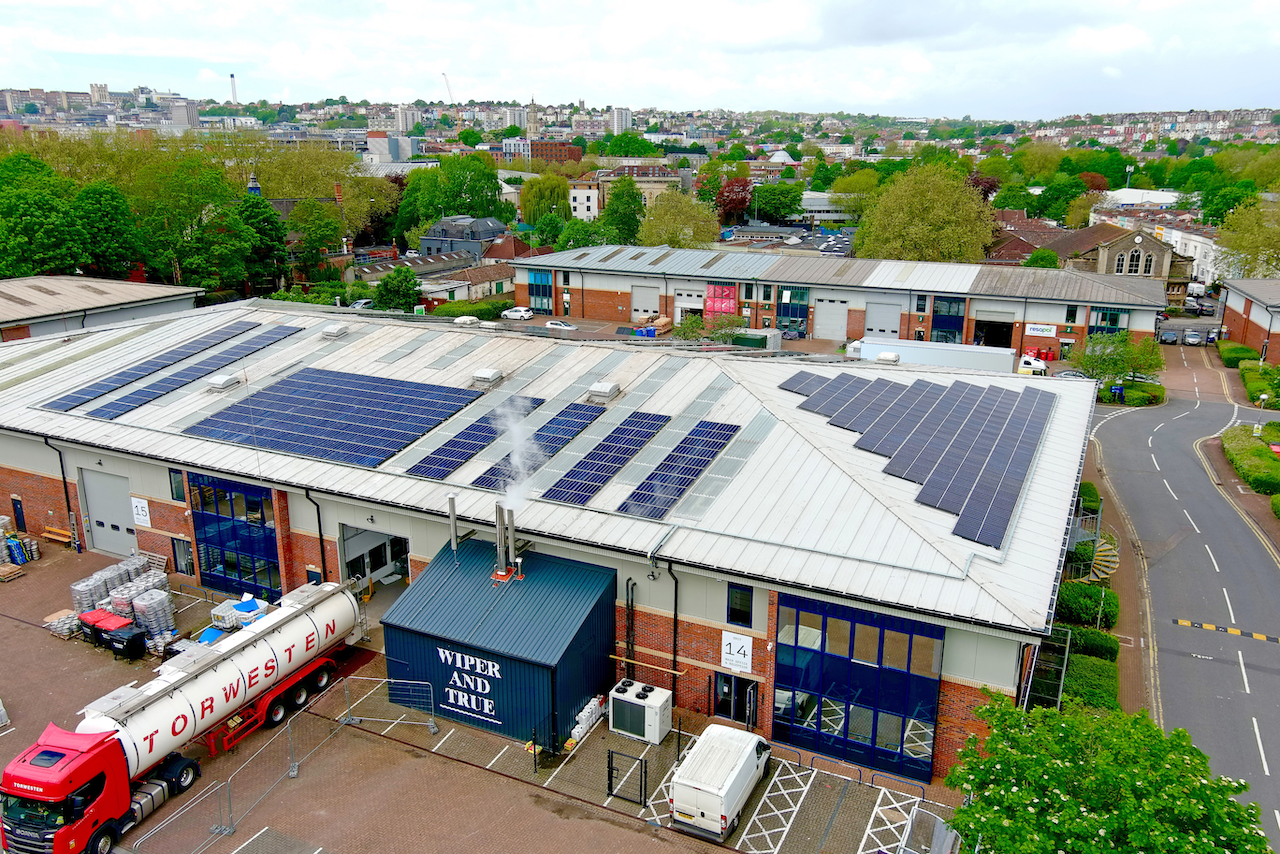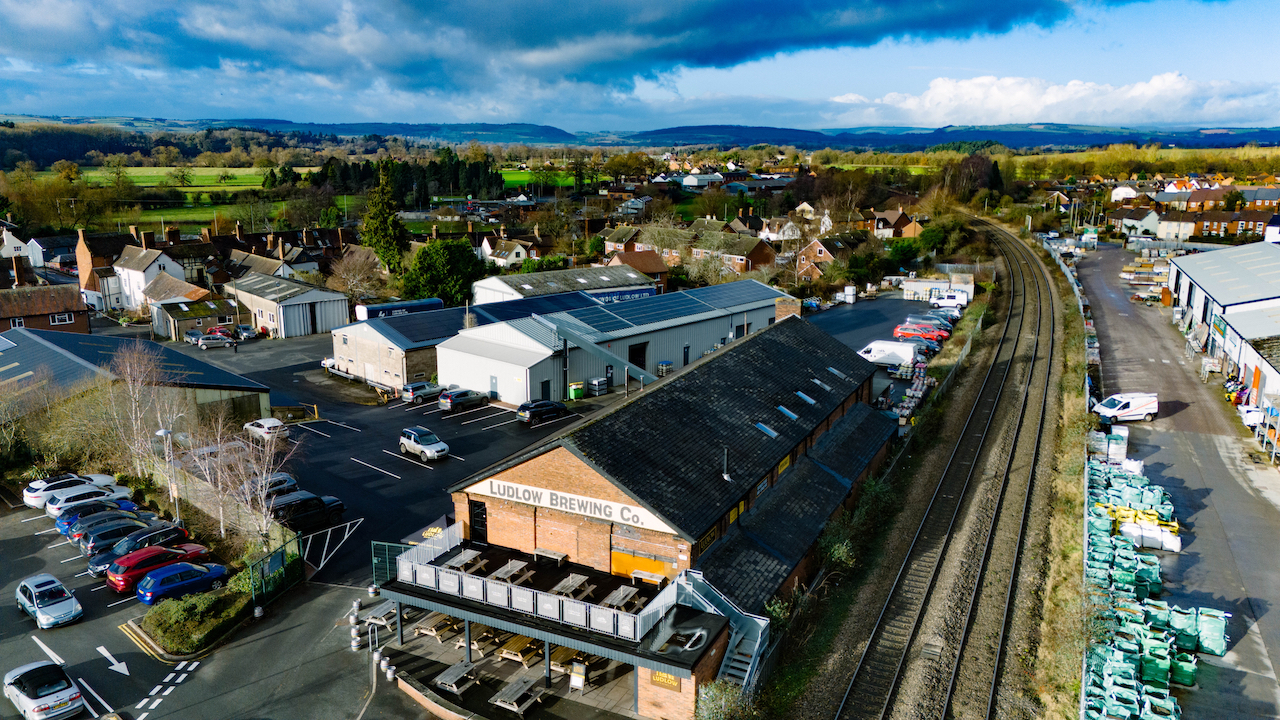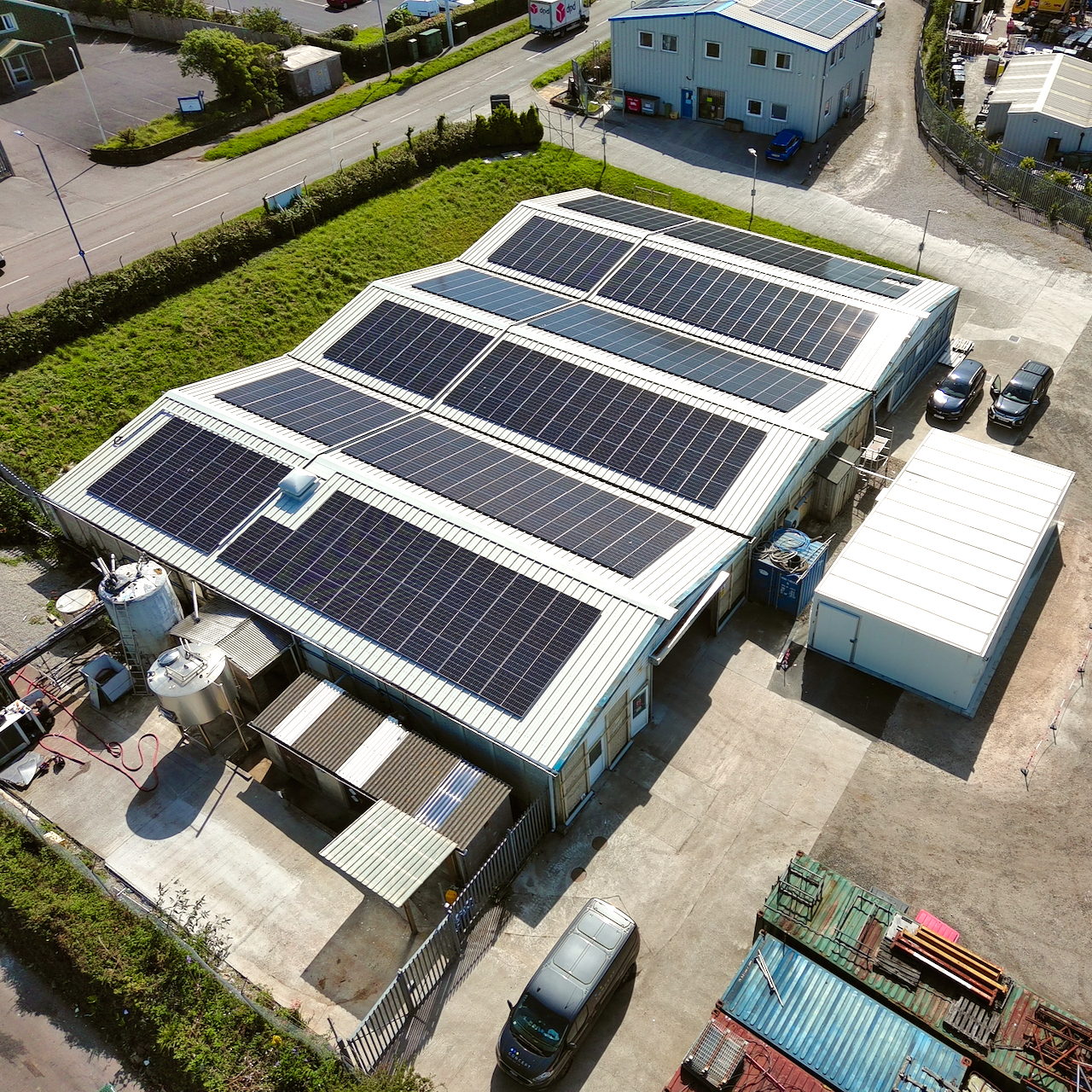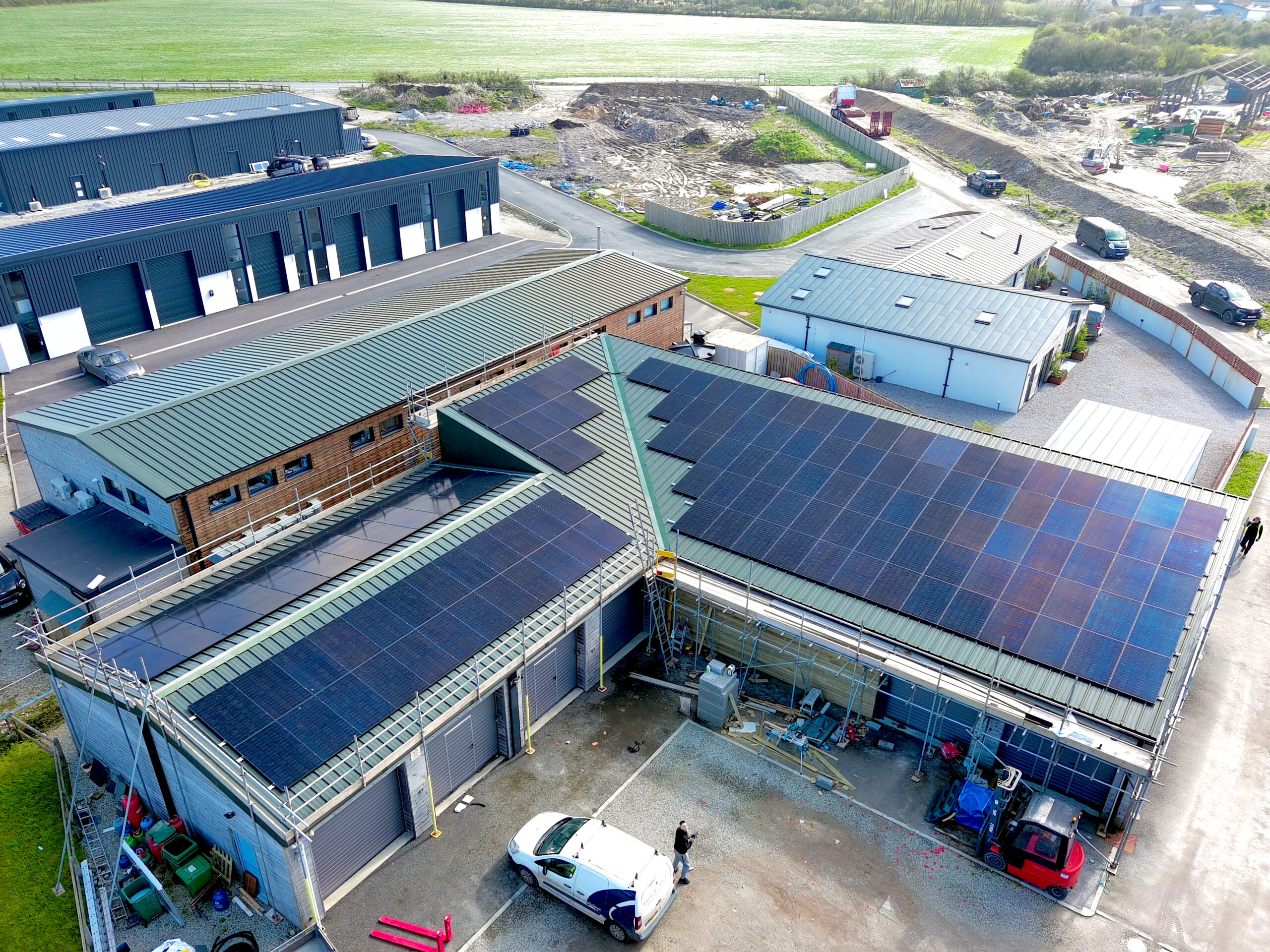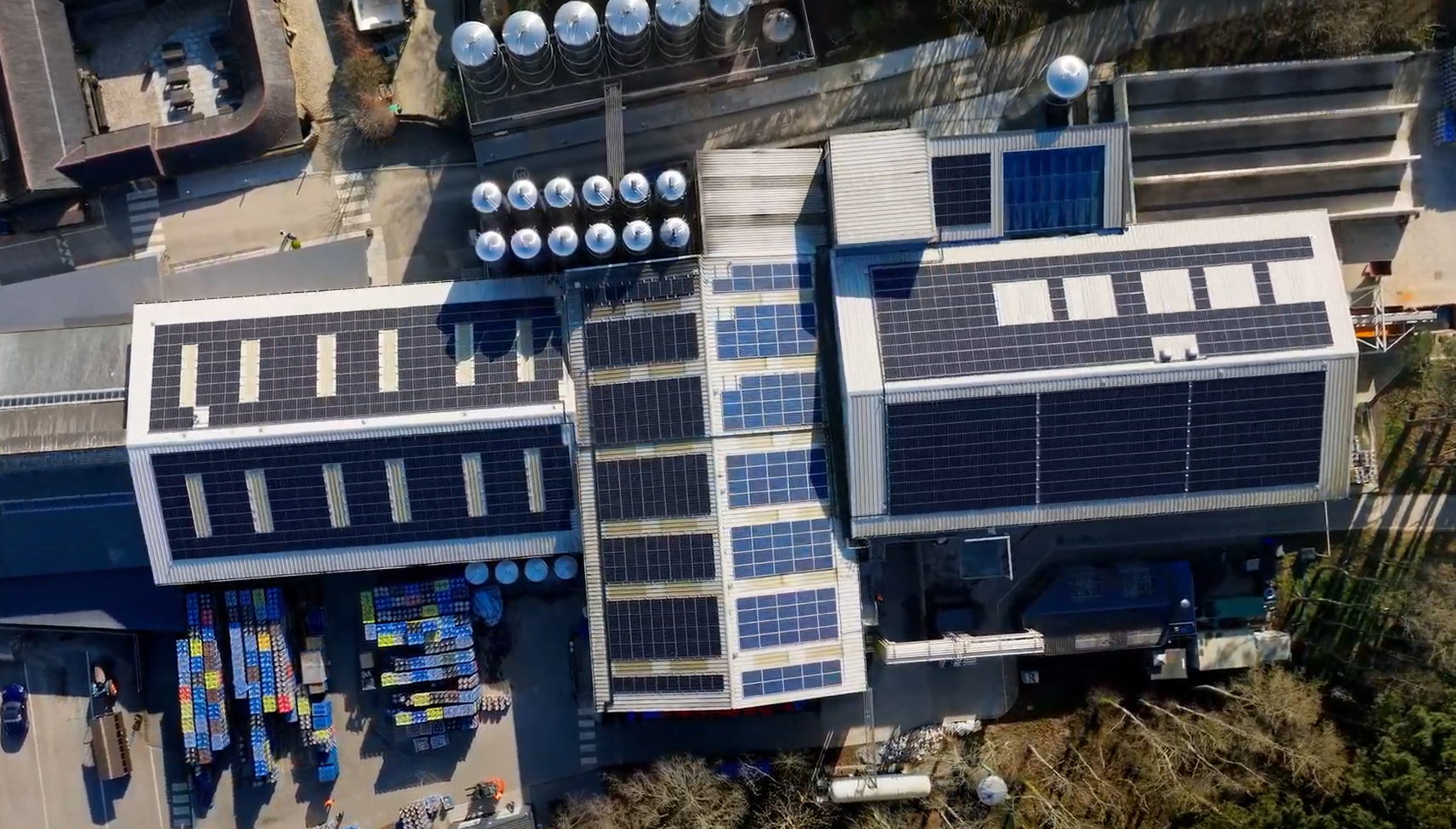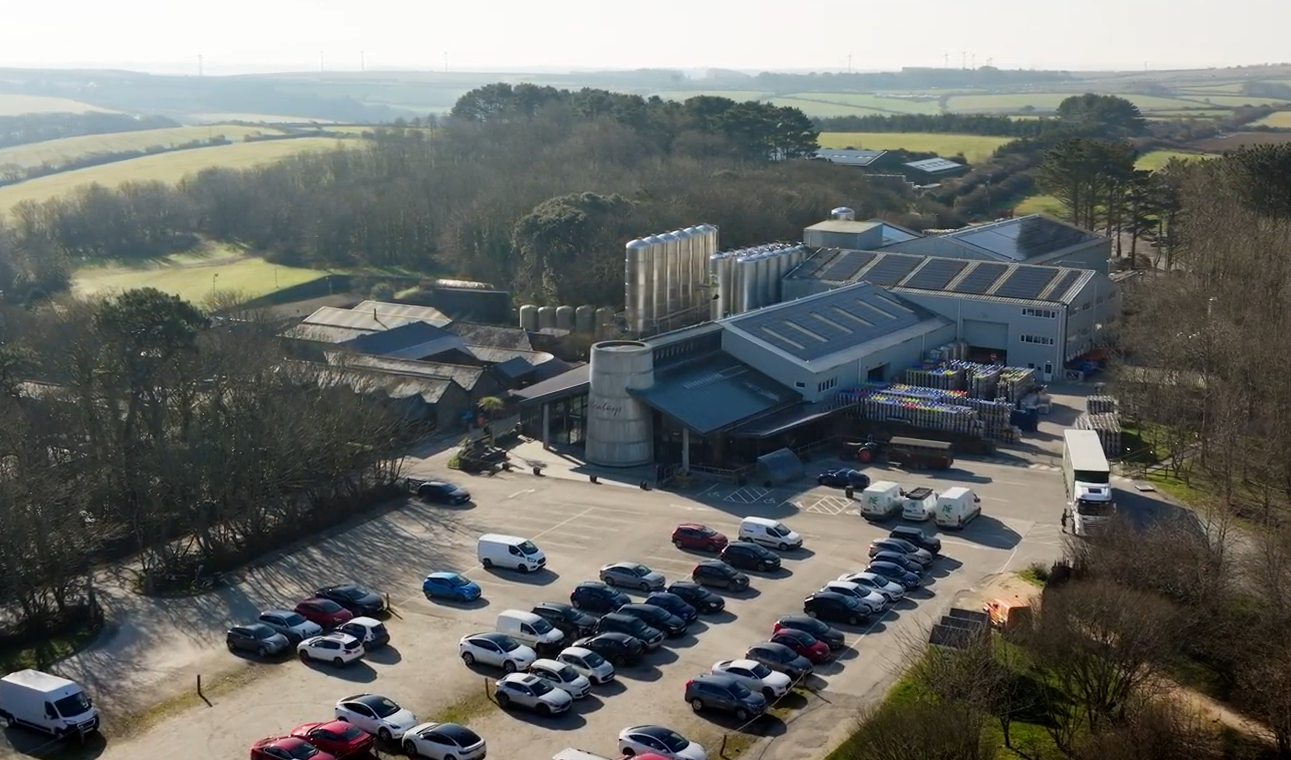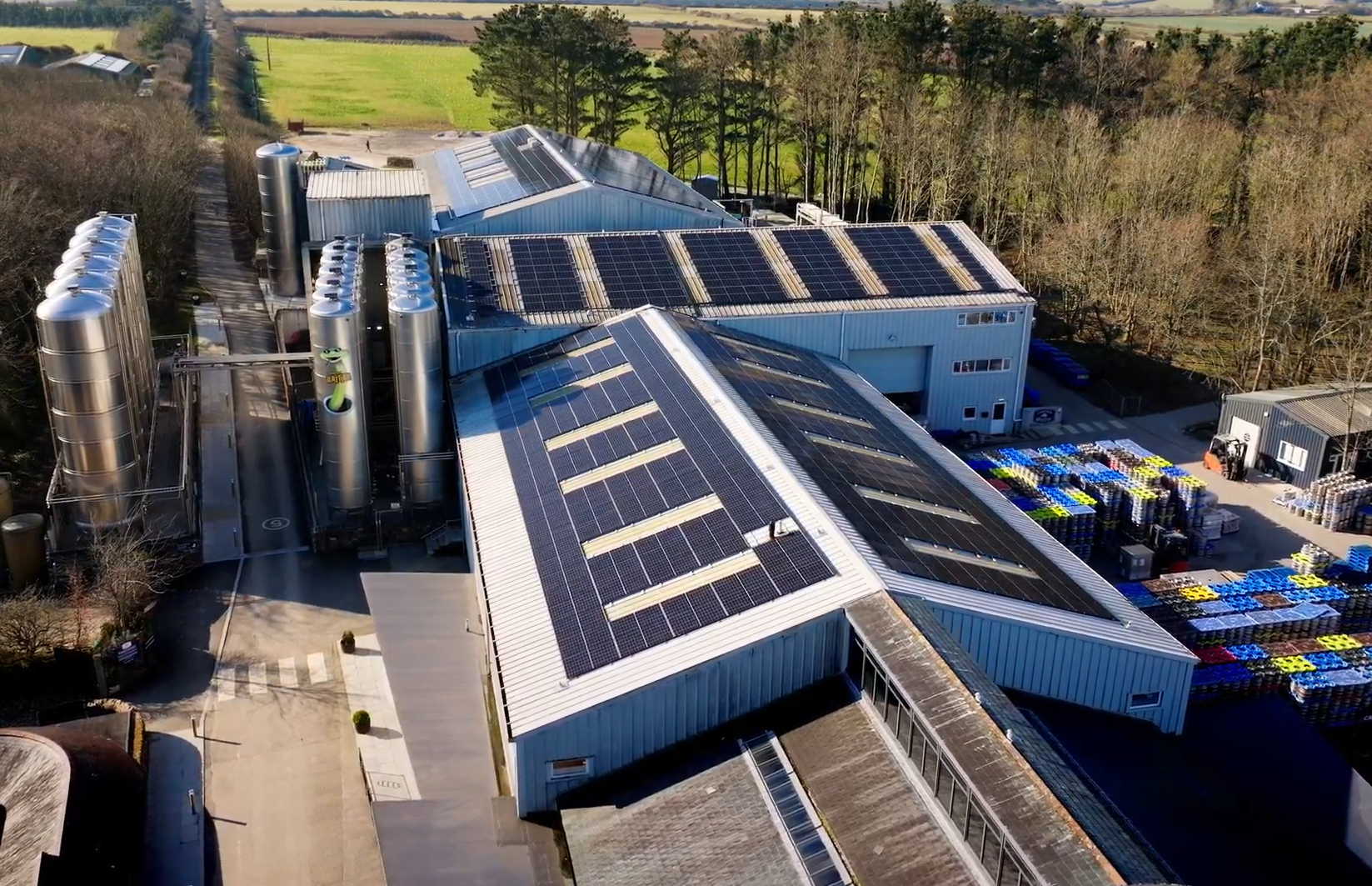Updated: October 2025
As sponsors of the Sustainability champion of the year award for the Brewers Choice Awards, CleanEarth has now worked with 15 breweries including Healey’s Cyder Farm and Verdant Brewing Co: totalling roughly 1.3 MWh of annual energy and over 7,000 tonnes of carbon savings within these system’s combined lifetimes.
Clients like Keltek Brewery are approaching their second year of energisation with their solar PV system, while Verdant Brewing Co have been successfully generating for several years. Now, we’ve added a further 7 brewery projects to our portfolio including: Healey’s Cyder Farm, Dartmoor Brewery, Lakedown Brewing Co, St Ives Brewery, and more to come.
Crucial carbon savings
These projects range from brand new builds like Bluntrock Brewery, to sites with rich history like Healey’s Cyder Farm and Ludlow Brewing Co. And while each project presents unique challenges, CleanEarth has seen all our brewery clients transform their energy costs and carbon emissions.
In the brewing industry, those carbon savings are paramount. Breweries make up 4.8% of electricity and fuel usage within the food and drink industry, with the average beer needing roughly 0.57 kWh per litre1. That adds up to somewhere between 55-66 kWh per barrel. Producing beers at any scale will see these numbers add up to a high degree of CO2 emissions and energy consumption.
That energy consumption then comes at a significant price, with July 2024 seeing a net closure rate2 of -29 from Q1, as the number of active UK breweries dropped to 1,748. These closures have in part been linked to the large-scale cost of production; including high energy prices. Joe Healey, co-MD of Healey’s Cyder Farm, expressed that “The catalyst [for solar] really was the energy spike.” With costs so high, every opportunity for self-generation had to be explored.“We wanted to maximise every square inch of every roof available,” Healey explains.
The importance of renewable practices for breweries also cannot be overstated. As 25% of beer drinkers are sustainable beer drinkers, many consumers willingly put increased spend behind names they recognise as more sustainable. This consumer pressure was also something that stood out to Healey’s, who noted their environmental impact as “[A] fundamental part of our ability to sell our product to our customers.” A recent survey of our brewery clients further revealed that an internal desire for greener operations was one of the key driving forces behind their solar installations, alongside energy costs.
Changing the landscape of brewing
Clients like ours are transforming the landscape of brewing into a more sustainable one, going hand-in-hand with increased energy security. For Ludlow Brewing Co in Shropshire their solar PV project started with their cold storage unit, before it grew from 36 kWp to 120 kWp across two roofs in two years. Wiper & True also expanded their 40 kWp capacity system to four times its original size between 2021 and 2023. Both clients benefited from the support of local government grants that made these projects more accessible. For Bluntrock Brewery, they’ve taken it another step further by working towards B Corp status and installing the first CO2 recovery system in a Cornish brewery.
“The CleanEarth team clearly grasped the logistical complexities of the project. It was reassuring for us to know they had the experience and the can-do attitude that the job demanded.” – James Heffron | Founder, Verdant Brewing Co
Solar projects like our work with these clients provide breweries with protection against energy price shocks and rising costs. And as demand for sustainability grows from consumers and regulations alike, the business case for renewable energy is only getting stronger. Having doubled our brewery installations this year already, our team at CleanEarth has seen first-hand the benefits of solar PV for this innovative industry. It’s clearer than ever – the time for renewable energy in brewing is now.
Sources:
1 Crafting a Greener Pint Starts with Energy Reduction – SIBA – Society of Independent Brewers and Associates
2 Independent brewing sector sees strong sales and demand but financial pressures and market access restricting growth – SIBA – Society of Independent Brewers and Associates
